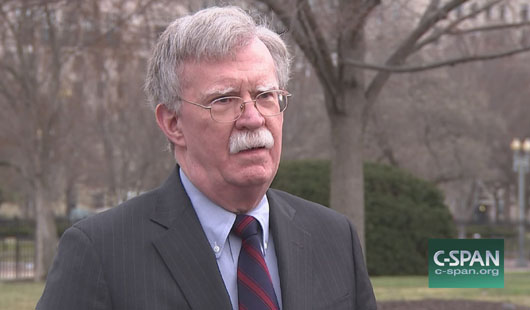FPI / June 26, 2020
Excerpted from analysis by Gregory R. Copley, Editor, GIS/Defense & Foreign Affairs
The arrival of the Trump administration following the November 2016 elections saw many “old hands” sense opportunity. They saw an “outsider in the White House”, crude and unlettered in the ways of Washington. They could help him, mold him, “take charge.”

Little did they understand that they were yesterday’s men, and that the incoming President intuitively grasped strategic reality far more comprehensively and realistically in the new era than did they. Because the grand strategic framework had, predictably, shifted, and the “new total war” framework of the 21st Century had, in fact, emerged.
It was no longer a world in which “terrorism” was in itself a significant threat (if, indeed, it ever was a threat to be handled the way it was at the turn of the 21st Century). It was also a world emerging to show that “military strategy” was not the defining approach to national security or national prosperity. It was an amorphous war, “total war” of the 20th Century: the Cold War.
What became clear was that the “old warriors” who sought to assist incoming President Donald Trump were totally unversed in the new nature of warfare, but were invested largely in their own prestige and ego acquired during an earlier era of tactical counter-terrorism.
I refer, as examples, to retired U.S. Marine Corps Gen. (and former Secretary of Defense) James Mattis; former U.S. Marine Corps Gen. John F. Kelly (former White House Chief of Staff and former Cabinet Secretary for Homeland Security), and former Amb. John Bolton (who served briefly as national security adviser). All, arguably, impressive and credentialed figures.
All were out of their league.
Each, however, felt that being expert in one arena meant that their expertise somehow magically translated into expertise on all matters on which their eyes alighted. They were, after all, “reasonable men”, and assumed that the logic of their experience would guide them.
More . . . . Current Edition . . . . Subscription Information
FPI, Free Press International
